the cold
war swap
also by Ross Thomas
The Seersucker Whipsaw
Cast a Yellow Shadow
The Singapore Wink
The Fools in Town Are on Our Side
The Backup Men
The Porkchoppers
If You Cant Be Good
The Money Harvest
Yellow-Dog Contract
Chinamans Chance
The Eighth Dwarf
The Mordida Man
Missionary Stew
Briarpatch
Out on the Rim
The Fourth Durango
Twilight at Macs Place
Voodoo, Ltd.
Ah, Treachery!
the cold
war swap
Ross Thomas
THOMAS DUNNE BOOKS
ST. MARTINS MINOTAUR  NEW YORK
NEW YORK
THOMAS DUNNE BOOKS .
An imprint of St. Martins Press.
THE COLD WAR SWAP . Copyright 1966 by Ross E. Thomas, Inc. Introduction 2003 by Stuart M. Kaminsky. All rights reserved. Printed in the United States of America. No part of this book may be used or reproduced in any manner whatsoever without written permission except in the case of brief quotations embodied in critical articles or reviews. For information, address St. Martins Press, 175 Fifth Avenue, New York, N.Y. 10010.
www.minotaurbooks.com
Library of Congress Cataloging-in-Publication Data
Thomas, Ross, 19261995.
The Cold War swap / Ross Thomas.1st St. Martins Minotaur ed.
p. cm.
ISBN 0-312-31581-3
1. Bars (Drinking establishments)Fiction. 2. AmericansGermanyFiction. 3. Bonn (Germany)Fiction. 4. DefectorsFiction. 5. Cold WarFiction. I. Title.
PS3570.H58C65 2003
813'. 54dc21
2002191951
First published by William Morrow & Co., Inc., in 1966
D 1 0 9 8 7 6 5
introduction
by Stuart M. Kaminsky
Ross was forty years old when he wrote his first novel, The Cold War Swap, in 1966. Coming from a career as a soldier, reporter, and political campaigner, he leapt onto the literary scene with that first attempt at fiction and won himself an Edgar Allan Poe Award for Best First Mystery.
The principal settings for Rosss first novel were two cities in which he had worked, Bonn and Berlin. The cities are portrayed vividly with a postwar noir style that sets a tone of quiet despair in which the characters will do almost anything to survive. And the beauty of Rosss characters in this dark world is that they are colorful and alive and they seldom plan ahead. Critics have compared Rosss work to that of Raymond Chandler, not in subject matter but in style. I've always thought of Ross as the American Eric Ambler by way of Elmore Leonard. Ross was the master of colorful, unpredictable characters, thieves, scoundrels, drunks, assassins, madmen, fools, bureaucrats, and confused and bewildered professionals.
In The Cold War Swap as in so many of his novels, it is sometimes difficult to tell if we are meant to take the characters seriously or if the author is leading us down a series of streets, alleys, and dark rooms with no idea himself of who or what will be around the next corner.
Is McCorkle, who sits in his shady bar in Bonn and drinks, broods, and smokes to generic excess, the comic side of Rick in Casablanca? Is Maas, the fat, sweating villain, the comic side of Sidney Greenstreet in The Maltese Falcon? Is Padillo Zachary Scotts distorted mirror image in The Mask of Dimitrios?
The book is a nonstop tale of blunders by both sides of the Cold War, a constantly changing attempt by mistaken spies and agents to hatch schemes they never quite put together. Is this book a soft laugh at the Cold War novel? I like to think that it is.
Men stagger into hotel rooms and fall dead. Bullets slowly kill off most of the cast. The best character in the book, Cook, the rich alcoholic, leaves the stage with the reader feeling that Thomas has played a dark joke on us, removing the character most full of life when we need him most.
There are things in The Cold War Swap that would seem badly outdated in other hands. In fact, there are dozens of books with the same theme, the rescuing of scientists from behind the Iron Curtain. Most of them are forgotten not because of their subject matter but because their pages were not peopled by the memorable, colorful characters of a Ross Thomas.
A caricature in other hands became a vulnerable human in Rosss books. The two gay defectors in The Cold War Swap move from near clich to sympathetic humanness. Waas, the vile fat opportunist, is given his best shot and gradually becomes a basically bad man whom we can truly understand.
I knew Ross, a very soft-spoken, generous, quiet man who displayed none of the flamboyance of his characters. Ross was almost nondescript, seldom smiled, traveled everywhere with his wife, and quietly took in and turned to brilliant fiction the quirks and quivers of those around him, from the small, enthusiastic Mexican band that couldnt carry a tune to the Italian taxi driver who displayed his pride in his mastery of the English language by destroying it.
Ross listened. He took no notes. He didnt seem to be there, didnt ask questions. He observed. He imagined.
Ross could turn a phrase with the best of our ilk and not draw attention to it. Ross could surprise us with a sudden turn that left us bewildered and in the palm of his hand, wondering what would happen to the survivors.
The man was a masterful storyteller.
He once told me that he had no idea what his characters were going to do when he sat down each day to write, no idea of how fate might step in. He said, "I often wonder whats going to happen next and thats what makes it interesting for me and, if Im lucky, for the reader."
He was more than lucky.
the cold
war swap
CHAPTER 1
He was the last one aboard the flight from Tempelhof to the Cologne-Bonn airport. He was late and became flustered and sweaty when he couldnt find his ticket until the search reached his inside breast pocket.
The English stewardess was patient and even smiled sweetly as he finally handed it over with mumbled apologies. The seat next to mine was vacant and he headed for it, banging a shabby briefcase against the arms of the passengers as he bumbled down the aisle. He dropped into the seat with a snort, not tall, squatty, maybe even fat, wearing a heavy brown suit that seemed to have been cut by a tinsmith and a dark-brown hat of no particular shape or distinction other than the fact that it sat squarely on his head with what seemed to be a measured levelness.
He tucked his briefcase between his legs and buckled his seat belt but didnt remove his hat. He leaned forward to peer out the window as the plane taxied to the end of the runway. During take-off his hands blanched white at the knuckles as they squeezed the arms of his seat. When he realized that it wasnt the pilots first time up he leaned back, produced a package of Senoussi and lighted one with a wooden match. He blew out the uninhaled smoke and then glanced at me with that speculative look which stamps a fellow traveler as something of a conversationalist.
I had been in Berlin for a three-day weekend, during which I had managed to spend too much money and to acquire a splendid hangover. I had stayed at the Hotel am Zoo, where they make Martinis as good as any place in Europe with the possible exception of Harrys Bar in Venice. They had taken their usual toll, and now I needed to sleep during the hour or so that it takes to fly from Berlin to Bonn.


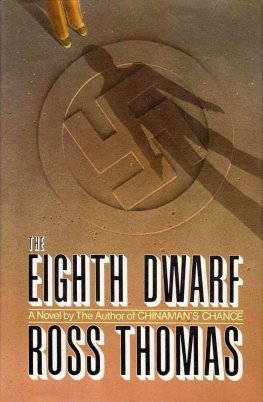
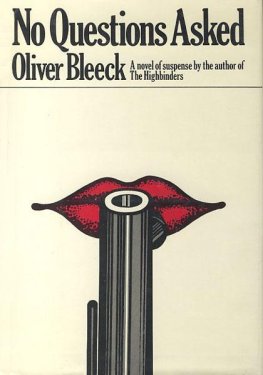
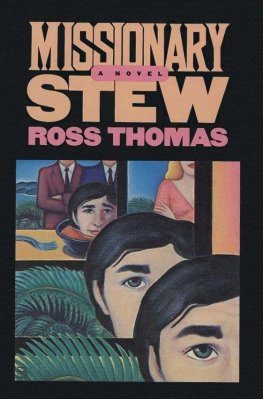
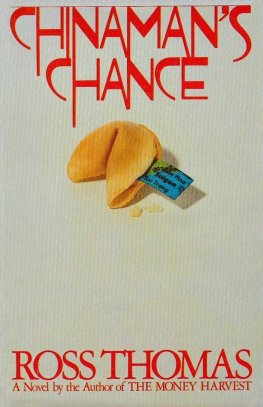
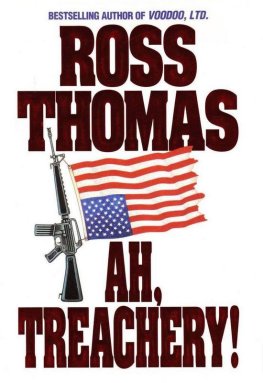
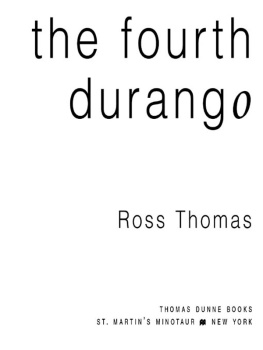
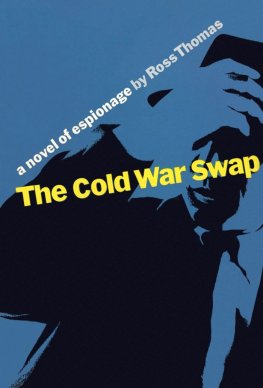
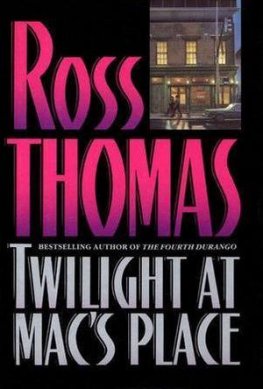
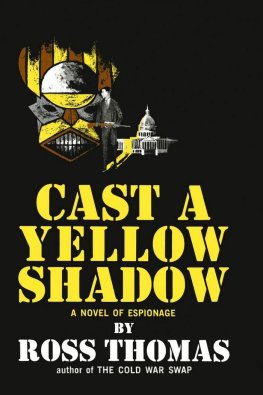
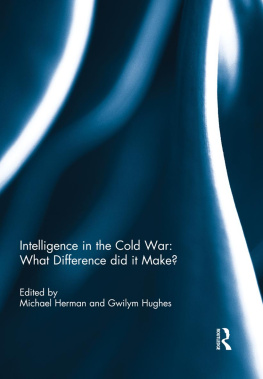
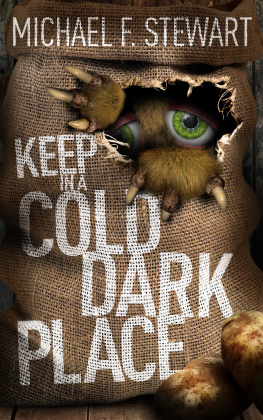
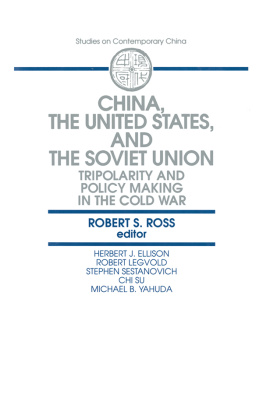
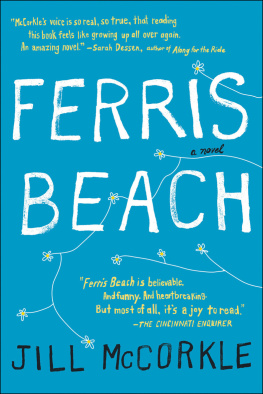
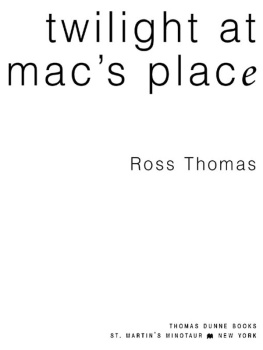
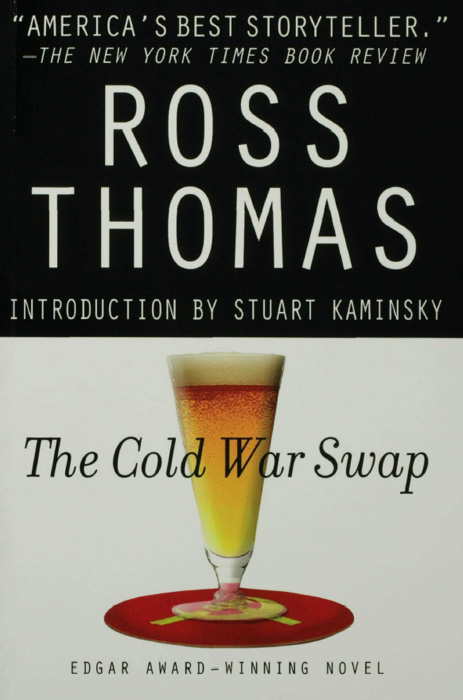
 NEW YORK
NEW YORK